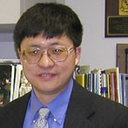Curcumin-free turmeric exhibits anti-inflammatory and anticancer activities: Identification of novel components of turmeric.
Mots clés
Abstrait
Turmeric, a dried powder derived from the rhizome of Curcuma longa, has been used for centuries in certain parts of the world and has been linked to numerous biological activities including antioxidant, anti-inflammatory, anticancer, antigrowth, anti-arthritic, anti-atherosclerotic, antidepressant, anti-aging, antidiabetic, antimicrobial, wound healing, and memory-enhancing activities. One component of turmeric is curcumin, which has been extensively studied, as indicated by more than 5600 citations, most of which have appeared within the past decade. Recent research has identified numerous chemical entities from turmeric other than curcumin. It is unclear whether all of the activities ascribed to turmeric are due to curcumin or whether other compounds in turmeric can manifest these activities uniquely, additively, or synergistically with curcumin. However, studies have indicated that turmeric oil, present in turmeric, can enhance the bioavailability of curcumin. Studies over the past decade have indicated that curcumin-free turmeric (CFT) components possess numerous biological activities including anti-inflammatory, anticancer, and antidiabetic activities. Elemene derived from turmeric is approved in China for the treatment of cancer. The current review focuses on the anticancer and anti-inflammatory activities exhibited by CFT and by some individual components of turmeric, including turmerin, turmerone, elemene, furanodiene, curdione, bisacurone, cyclocurcumin, calebin A, and germacrone.


